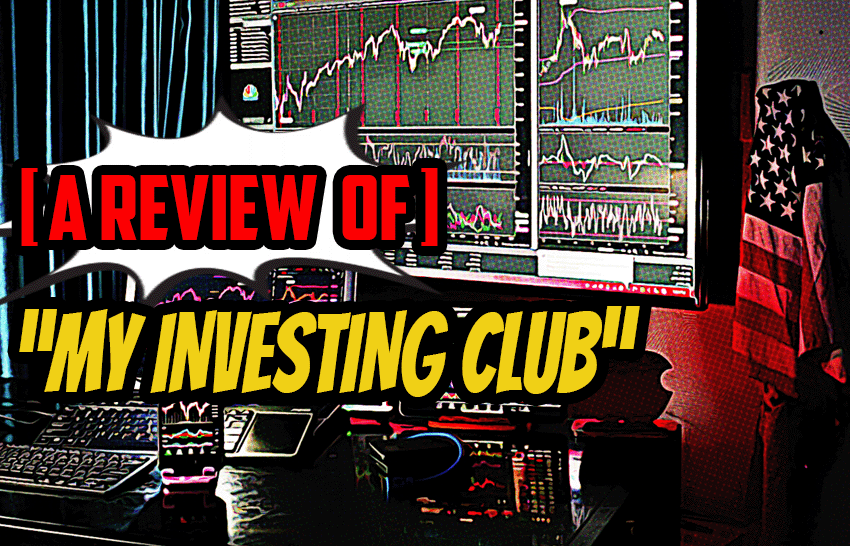“Market Wizards” is a book about interviews with top traders and in this new market wizards book review, we’re going to cover a few of the lessons I learned from it. It’s an interesting read, and if you want to know what it takes to become successful in trading, this book will give you some insight. One of my favorite books is “Stock Market Wizards” by Jack Schwager. It’s an interview book about traders with excellent track records, and it gives quite a bit of insight into their personal experience. Also, for me, it’s an inspiration to become better at trading consistently over the long term.
I read through my copy again last week. I wanted to write down some key ideas in one place so that I can use them as a reminder in future trades and in times where things aren’t going well and I feel like giving up. This blog post is largely based on what they said in the book and how I interpret their words in light of my own thinking and approach to trading (and life).
For more information on the book, you can read the details about the audiobook here on Amazon. Please note that this is an affiliate link and as an Amazon Associate I earn from qualifying purchases.
If you’re interested in following the trades of a real stock market wizard (who has a great trade win average) I recommend you sign up for a membership inside The Empirical Collective by clicking the link here.
So let’s get into this New Market Wizards book review by going over some of the key lessons that I got from it:
1. Stay humble
High self-confidence is good when it comes to trading (overconfidence is disastrous), but you shouldn’t be complacent about your own abilities. You must make sure you don’t overestimate your skills and lose money in the process because of over-optimism bias, which can lead you to take wrong bets on positions or trade altogether. Just like one should never underestimate their potential for screwing up (which will happen no matter what—no exceptions here), they shouldn’t overestimate how great they are at this game either. They should always remember that “successful people are always playing against the odds”, because the game is rigged against them.
2. Be patient and persevere
 All of these traders had to go through extremely tough times—a lot of it self-inflicted—but they all stuck with it, learned from their mistakes, and improved over time. They found something they enjoyed doing (e.g., trading) and then did everything in their power to master that skill. It’s important not just because you need to keep practicing your craft to become better at it, but also because if you learn about yourself through purposeful practice , done with an intent on improvement rather than the outcome, you will develop mental toughness , which will serve well in many aspects of life.
All of these traders had to go through extremely tough times—a lot of it self-inflicted—but they all stuck with it, learned from their mistakes, and improved over time. They found something they enjoyed doing (e.g., trading) and then did everything in their power to master that skill. It’s important not just because you need to keep practicing your craft to become better at it, but also because if you learn about yourself through purposeful practice , done with an intent on improvement rather than the outcome, you will develop mental toughness , which will serve well in many aspects of life.
3. Focus on risk management
All of these guys had to go through drawdowns and the associated emotional pain of blowing up their accounts, but they all did it more than once because they were so confident about their abilities that they wanted to get more aggressive in search for greater returns. These traders learned quickly what works and what doesn’t work for them, and become more conservative after a while (probably when they had nothing left). When I was younger, I made the mistake of increasing my risk appetite because I thought that’s how you can be successful at trading: just take bigger bets. That didn’t work out too well initially—I got my butt handed to me over by the market—but eventually paying the price made me realize the importance of risk management.
4. Start with something easy to get hooked
The first thing I learned about trading is that you should start doing it with only money you can afford to lose, because no matter how good you are, there’s always a chance that your edge will stop working and you will blow up your account . Many people go way too aggressive in the beginning just to prove something to themselves. That doesn’t work out well—ever—because if things turn against you, there’s nothing there for the taking (i.e., savings), but rather freely given by foolishly enthusiastic “trading friends”, so even though they don’t remember it now, they’ll remember later.
5. Ignore “experts” and market consensus (for the most part)
I’ve always thought that listening to what other experts have to say is a bad idea for beginners, because they don’t know enough about you and your situation, nor do they have any real skin in the game so their opinion is not very valuable or insightful—especially since it will be tainted by confirmation bias . The only time experts should be listened to is when you want to learn from them, but also double-check their facts before taking action on anything they say. In terms of the market consensus , I remember who said what at every stage of this current bull run since 2009 , which made me realize that everyone was bullish on just about everything out there. I was not.
6. Quality matters more than quantity (focus)
A couple of these traders started with numerous charts to look at, only to realize that’s not the way they’re wired and wanted to eliminate noise by focusing on less. Having said that, it doesn’t mean that you should remove anything from your “watch list”, but rather you should be selective about what you trade—the idea here is to narrow down your focus to a few setups or tools instead of looking at everything under the sun. Better to have one great setup which meets all of your requirements than five mediocre ones. The latter will lead quickly to analysis paralysis .
7. When in doubt, stay out
I don’t think any of these traders were 100% right on any of their calls; they all missed plenty (we only hear about the good trades here), and when that happens, or even worse , when your stop is hit, it is always a good time to take a break and re-evaluate the situation before jumping back in with both feet. It is better to be safe than sorry , especially because if you’re wrong (which is most likely the case, by the way), not taking a break will make it harder for you psychologically: “How can I be wrong?” This lack of self-awareness combined with confirmation bias (“This has never happened before so it cannot happen now”) can cause traders to stay in losing positions much longer than they should have.
If you just aren’t able to find any good trades, you might want to consider signing up for a trade alerts service. Click here for help to choose the –> best options advisory service
8. Emotions matter
This point was driven home throughout the conversation, and it became apparent to me that successful traders learn how to detach themselves from their emotions as soon as possible. For some this might come more naturally—for example, one of the newbies on our list went through a divorce recently and he says that going through that has helped him a lot in terms of staying out of his own way during a trade. Some other methods focus around creating rules for yourself which will keep you disciplined when entering or exiting positions (“My stop is always X pips away”, etc.), while others use technical indicators such as Bollinger bands , moving averages , stochastic , MACD , etc. to take out as much emotion as possible from each trade they enter into.
I would argue that the latter is not so much an emotional thing as it is a trading methodology, but I understand why beginners might have trouble with this. I know that I did at first because my understanding of technical analysis was very rudimentary—all I knew then was candlestick patterns , which turned out to be totally worthless. This isn’t meant to turn anyone away from using technical analysis , quite the contrary—since you are here reading this article, you are probably interested in TA . The point I’m trying to make is that there’s no need for beginners to overcomplicate things when they’re just starting out. As you become more comfortable with your strategies and better equipped emotionally (see point 2 you will naturally want to start incorporating other indicators in your trading. I’ve outlined all the things you’ll need for this journey in my new ebook .
9. Patience is key
I have not yet gotten to the point where I can take my own advice on this one, but patience is something that pays off big time when combined with experience , so it will be interesting to see how I perform once I reach that state of mind. The general consensus among our traders was that you should always wait at least 30 minutes after a news release before entering into any position (some say longer), and if possible wait until several hours after (or even better, the next day) because we naturally become overconfident about our opinions immediately after a release and enter into positions which often prove to be wrong.
10. You don’t have to trade every single day
It is real easy to fall into the trap of thinking that you need to trade as much as possible in order to ensure your success, but this just isn’t true . Our traders prefer a more varied approach, and most track anywhere from 8-15 currencies simultaneously throughout different market sessions—less than most Forex brokers would allow their clients to handle. This might sound like too many trades at first, but when you start looking for setups intraday , you’ll notice how natural it becomes once you get the hang of it. The idea behind this strategy is that by “life surfing” ( AKA trading multiple markets at once) , we can reduce our exposure to risk and keep our emotions under control (by leaving the more emotional trades for only the most promising setups we find).
11. Paper trade, paper trade, paper trade
This is another point that has been driven into my head over and over again since I began writing about Forex . There’s simply no way around this one—practice makes perfect as they say, and if you want to become better at trading Forex , then there’s no better way to achieve this than by practicing on a demo account . Our own Caroline Guyomard agrees:
“I know that a lot of beginners avoid trading on a demo because it feels “safer”, but let me tell you that nothing could be further from the truth. This is where you will gain the most knowledge, but it’s also really hard to do well on a demo because it requires so much discipline. I would say that for beginners who are just starting out there is NO better way than to trade on a demo account until you have enough confidence in your trading skills.”
12. Never change your plans
This last point is based on a talk I had with FX Empire ‘s very own Jessica Walker . No matter what, don’t ever change your trading plans—when you do so, you are basically doubling your exposure to risk , since you have not only the original trade which you are expecting to work out to worry about but also another one in case your first trade doesn’t go the way you expected. If this happens more than once it can easily become a snowball effect that might eventually cost you everything, because every time you change your plan, there’s less and less “room for error” included in it. And even if you feel tempted to change your plan because of something unexpected happening (e.g. an important news release your positions during Asian or American hours
While we like our trades for the most part (see point 9), some of them come across as more emotional than others—and that is where we can run into trouble if we’re not careful. Our traders prefer to take care of the trickier trades before and after major news releases (when volatility is at its highest) , and keep their ones during the Asian and US hours.
Conclusion
This is a fantastic read. I think anyone who trades seriously should pick up a copy. The fact that you can learn in just a few minutes the lessons that it took others a lifetime to learn is nothing short of incredible.

Let’s look at a few other related things that others often searched for when looking for a new market wizards book review:
Where are the support and resistance levels?
Support and resistance levels come from the need to find a balance between supply and demand. Relative lows or highs can occur when there is a lot of pressure from either supply or demand, respectively.
In technical analysis, support is where there’s been a recent need for liquidation that’s been fulfilled without too much correction in the opposite direction, while resistance points to an area where liquidation has been attempted but ultimately failed to get past this point. In other words, it’s difficult for shares to go much lower than this low point unlike in the case of higher prices/highs when they will stay at this high price and not fall any further except maybe in sudden spurts which traders will often take advantage of.
How can the markets be beat?
Everyone who has ever taken a statistics course should know that the stock markets are inherently random. So, as options traders or active investors, you can’t expect to systematically increase your wealth by choosing appropriate investments all the time – it’s simply not going to happen. By being more conservative and spreading around investments across different industries, things might be a little less volatile but there is no guarantee of a payoff.
Ultimately, the only way to “beat” the market is by using insider information from companies insiders – just don’t say we didn’t warn you! People have been trying for generations without being able to find any meaningful patterns among outside analysts’ comments or predictions about how stocks will do in order to beat them at their own game.
What is value investing?
Value investing is the process of buying shares in companies at a price below what is known as their intrinsic value.
Value investors believe that assets are priced fairly most of the time, and they assume that markets are efficient. Therefore, undervalue investors often assume that over time stocks will become more fairly priced, with low prices eventually moving higher towards reasonable targets.
WHAT IS VALUE INVESTING?
“Value investing involves searching for stocks whose market or book values may be significantly less than its intrinsic or potential worth – what I use to call “the margin of safety”. This creates an opportunity to invest incremental funds with minimal downside risk but substantial upside.”
-Warren Buffett
How does one let profits run?
You let your profits run as long as possible, as it helps maximize your future wealth. In other words, if you need the money for a vacation or to cover expenses, make sure to take those off first. But otherwise, it’s better to leave the funds where they are and wait until they reach their full value over a number of years.
There is always the risk that corporations will go under or that unforeseen events will happen. However, many people would far rather have a shot at earning 10% annual interest on their investments instead of 1-3%. And though there is always a chance that something severe could happen which causes long-term effects on stocks if it works out correctly this strategy allows an investor more time.
What separates the world’s top traders from the vast majority of unsuccessful investors?
The will to risk. Successful traders are able to commit their money to the market with the knowledge that if they win, they’ll have more money to trade with. It is this willingness to let winners turn into losers that separates the successful trader from the unsuccessful trader.
It’s worth noting that most people who lose tend not be investors-they’re gamblers or day traders who are looking for a quick score by playing fast and loose with their investments instead of focusing on staying in control of their risks.
When you find an investment strategy or pattern that pays off, you should stick with it until there’s reason not too! And when luck goes against your favor, slow down until you can identify what went wrong.
Which market wizards book is best?
My personal favorite is “Future Rock – The Stock Market’s Next-Gen Metrics” by Phil Pearlman. In this book, he gives an in-depth analysis of the 10 leading market wizards on how they made their fortunes and what the next generation of trading looks like.
This book changed my life and gave me a whole new outlook on investing, something that I never thought would be possible before I stumbled on it while looking for some information about technical analysis. From analyzing some gigantic data sets to forecasting global trends with harmonic analysis this system has helped me spot impending changes in the market long before they happen! Give it a read if you want to make more money without doing much work at all 😉


 The Most Important Takeaways from Capitalist Manifesto by Robert Kiyosaki
The Most Important Takeaways from Capitalist Manifesto by Robert Kiyosaki  My Investing Club Reviews 2022 – A Closer Look Of This Active Day Trading Community
My Investing Club Reviews 2022 – A Closer Look Of This Active Day Trading Community  The Best Stock Market Gifts for Dad – 10 Unique Gifts for the Stock Market
The Best Stock Market Gifts for Dad – 10 Unique Gifts for the Stock Market  Looking for The Best Stock Trading Tablet? Here are 5 Tablets That Can Get The Job Done
Looking for The Best Stock Trading Tablet? Here are 5 Tablets That Can Get The Job Done  Are Chromebooks Good for Stock Trading? A Review of Trading Laptops
Are Chromebooks Good for Stock Trading? A Review of Trading Laptops  Stock Prediction Software – Artificial Intelligence Trading Tool Review
Stock Prediction Software – Artificial Intelligence Trading Tool Review